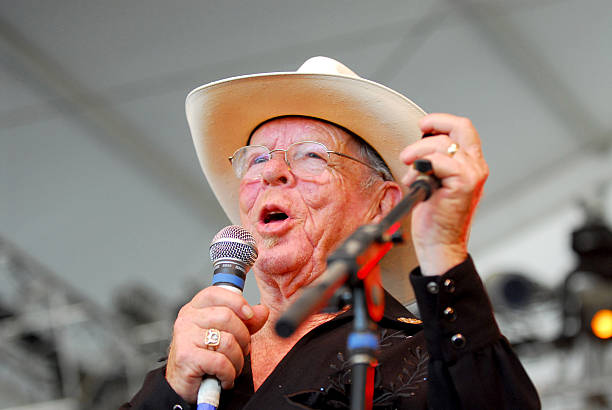The Harmonious Legacy of Country and Gospel Music
The Louvin Brothers, consisting of Ira and Charlie Louvin, stand as one of the most influential and revered duos in the history of country and gospel music. Known for their ethereal harmonies, poignant songwriting, and deeply spiritual themes, the Louvin Brothers left an indelible mark on the music world. Their journey from humble beginnings in rural Alabama to the heights of country music stardom is a testament to their unparalleled talent and dedication to their craft.
 Ira Lonnie Loudermilk was born on April 21, 1924, and his younger brother, Charles Elzer Loudermilk, followed on July 7, 1927. Raised in the small town of Henagar, Alabama, the brothers grew up in a deeply religious family where gospel music was an integral part of their daily lives. Their father, a stern and devout man, ensured that the family attended church regularly, and it was here that Ira and Charlie first developed their love for singing.
Ira Lonnie Loudermilk was born on April 21, 1924, and his younger brother, Charles Elzer Loudermilk, followed on July 7, 1927. Raised in the small town of Henagar, Alabama, the brothers grew up in a deeply religious family where gospel music was an integral part of their daily lives. Their father, a stern and devout man, ensured that the family attended church regularly, and it was here that Ira and Charlie first developed their love for singing.
From a young age, the brothers were captivated by the sounds of the Carter Family, Jimmie Rodgers, and other early country music pioneers. They began performing together, honing their harmonies and songwriting skills. By their teenage years, they had adopted the stage name "Louvin Brothers," a simplified version of their surname that would become synonymous with their unique sound.
In the early 1940s, the Louvin Brothers began their professional career, performing on local radio stations and at small venues throughout the South. Their early music was deeply rooted in gospel, but they soon expanded their repertoire to include secular themes, blending elements of country, folk, and bluegrass. Their tight harmonies, characterized by Ira's high tenor and Charlie's warm, smooth baritone, set them apart from other acts and quickly garnered them a dedicated following.
The breakthrough for the Louvin Brothers came in the early 1950s when they signed with Capitol Records. Their first major hit, "When I Stop Dreaming," released in 1955, showcased their exceptional harmonies and emotional depth. The song's success marked the beginning of a prolific period for the duo, as they continued to release a string of hit singles and albums that would define their legacy.
 One of the hallmarks of the Louvin Brothers' music was their ability to seamlessly blend sacred and secular themes. Their 1959 album, "Satan Is Real," is a prime example of this duality. The album, featuring a now-iconic cover depicting the brothers standing before a large, menacing depiction of Satan, is a collection of gospel songs that address themes of sin, redemption, and faith. Tracks like "The Christian Life" and "Satan's Jeweled Crown" are imbued with a profound sense of spirituality and moral conviction, showcasing the brothers' deep religious roots.
One of the hallmarks of the Louvin Brothers' music was their ability to seamlessly blend sacred and secular themes. Their 1959 album, "Satan Is Real," is a prime example of this duality. The album, featuring a now-iconic cover depicting the brothers standing before a large, menacing depiction of Satan, is a collection of gospel songs that address themes of sin, redemption, and faith. Tracks like "The Christian Life" and "Satan's Jeweled Crown" are imbued with a profound sense of spirituality and moral conviction, showcasing the brothers' deep religious roots.
In addition to their gospel work, the Louvin Brothers produced numerous country hits that explored themes of love, heartache, and everyday life. Songs like "Cash on the Barrelhead," "I Don't Believe You've Met My Baby," and "My Baby's Gone" exemplify their ability to craft poignant, relatable narratives set to beautiful melodies. Their music resonated with a wide audience, earning them a place in the hearts of country music fans across America.
Despite their professional success, the Louvin Brothers' personal relationship was often fraught with tension. Ira, known for his fiery temper and struggles with alcoholism, frequently clashed with his more reserved and level-headed brother, Charlie. These conflicts, coupled with Ira's erratic behavior, eventually led to the duo's breakup in 1963. However, their influence on country and gospel music endured, and their songs continued to be celebrated by fans and fellow musicians alike.
After the breakup, Charlie Louvin embarked on a successful solo career, recording numerous albums and continuing to perform well into his later years. Ira, on the other hand, struggled to maintain his career and personal life, tragically passing away in a car accident in 1965. Despite their tumultuous relationship, both brothers left a lasting legacy through their music.
The Louvin Brothers' influence can be heard in the work of countless artists across genres, from country legends like Emmylou Harris and Johnny Cash to modern-day folk and Americana musicians. Their ability to convey deep emotion and spiritual depth through their harmonies and songwriting set a standard that continues to inspire.
 In recognition of their contributions to music, the Louvin Brothers were inducted into the Country Music Hall of Fame in 2001. This honor reflected their enduring impact on the genre and their status as pioneers of country and gospel music. Their recordings remain essential listening for anyone interested in the roots of American music, and their songs continue to be covered and celebrated by artists around the world.
In recognition of their contributions to music, the Louvin Brothers were inducted into the Country Music Hall of Fame in 2001. This honor reflected their enduring impact on the genre and their status as pioneers of country and gospel music. Their recordings remain essential listening for anyone interested in the roots of American music, and their songs continue to be covered and celebrated by artists around the world.
The Louvin Brothers' story is one of talent, perseverance, and the power of music to convey the deepest aspects of the human experience. Their harmonies, filled with both beauty and sorrow, speak to the complexities of life and faith, resonating with listeners across generations. As we reflect on their legacy, we celebrate not only their contributions to music but also their ability to touch the hearts and souls of all who hear their timeless songs.
TOP
